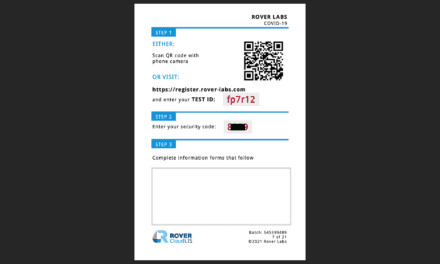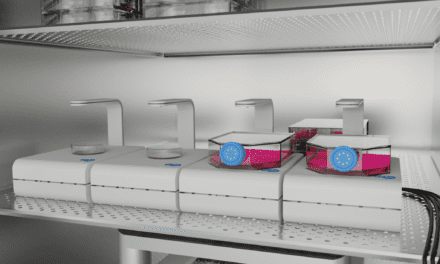According to a recent study, artificial intelligence-powered glucose predictions generated by the continuous glucose monitoring system of diabetes management specialist One Drop, New York City, are 91.9% accurate for hypoglycemia and 91.6% accurate for hyperglycemia.1 The findings demonstrate increased accuracy of direct glucose, hypoglycemia, and hyperglycemia predictions across multiple time periods.
One Drop’s patent-pending machine-learning model accurately predicts the probabilities that a user’s glucose will rise above 180 mg/dL or fall below 70 mg/dL. At 30 minutes before the expected increase, the predictions are 99.5% accurate; at 1 hour they are 98.6% accurate, and at 4 hours they are 91.9% accurate—all higher ratings than other published studies examining hypoglycemia prediction using continuous glucose monitor data.1
Sources for One Drop’s study included more than 10 million hours of continuous glucose monitor data as well as self-care data from a sample of more than 3,000 users.
“One Drop’s breadth of data includes glucose, food, exercise, sleep, and heart rate, which allows us to surpass the accuracy of IBM Watson Health at 4-hour hypoglycemia predictions,” says Dan Goldner, vice president of data science at One Drop. “For the first time, we have the capability to alert people at risk of experiencing severely high or low blood sugar. Our AI-powered alerts have the potential to help our millions of users worldwide exercise proactive, preventive self-care.”
The study results also indicate an increased level of accuracy for point predictions of blood glucose concentration at 30 minutes and 1 hour, as compared to a previous study submitted to the Diabetes Technology Society.2 The most substantial change occurred in the percentage of predictions with errors less than 30 mg/dL, which rose from 97.0% to 98.9% among 30-minute predictions and from 77.9% to 78.7% among 1-hour predictions.
“As someone living with type 1 diabetes, I know how scary going low can be. It can literally be a matter of life or death,” says Jeff Dachis, founder and CEO of One Drop. “Our increasingly accurate machine-learning models take the fear and guesswork out of managing low blood sugar, and prevent harmful overcorrections that often lead to hyperglycemia and increased A1c.”
One Drop provides users with AI-powered predictive insights and real-time advice on how to adjust their behavior (diet, physical activity, and more) for better outcomes without intervention from a healthcare provider. The machine-learning models are trained on more than eight billion data points from three million users worldwide.
Importantly, One Drop’s models do not require getting to know an individual over time. Unlike other predictive tools, One Drop’s models provide accurate predictions for one person based on the aggregate data of all people with similar health profiles. Within minutes of entering a single data point into the One Drop app, a user can receive their first prediction.
One Drop offers personalized programs for people living with diabetes, prediabetes, high blood pressure, high cholesterol, or any combination of these conditions. The company’s unique approach to inspiring positive behavior change and proactive self-care combines personal health coaching, connected devices, and life-saving predictions.
For more information, visit One Drop.
References
1. Agarwal P, Lingtao C, Chang YC, et al. Machine learning to predict hypoglycemic events from continuous glucose monitoring data [abstract, online]. Diabetes. 2019;68(Suppl 1):280-OR; doi: 10.2337/db19-280-or.
2. Wexler Y, Goldner D, Osborn C, Hirsch A, Huddleston B, Dachia J. Hypo- and hyperglycemia prediction from pooled continuous glucose monitor data [abstract 449/abstract ID 503, online]. Presentation at Advanced Technologies and Treatments for Diabetes, Madrid, February 19–22, 2020. Diabetes Technol Ther. 2020;22(Suppl 1):A-155; doi: 10.1089/dia.2020.2525.abstracts.





